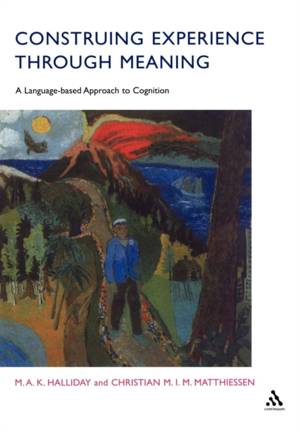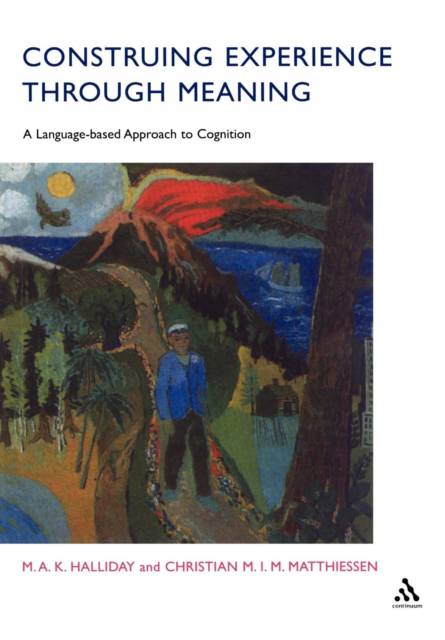
Bedankt voor het vertrouwen het afgelopen jaar! Om jou te bedanken bieden we GRATIS verzending (in België) aan op alles gedurende de hele maand januari.
- Afhalen na 1 uur in een winkel met voorraad
- In januari gratis thuislevering in België
- Ruim aanbod met 7 miljoen producten
Bedankt voor het vertrouwen het afgelopen jaar! Om jou te bedanken bieden we GRATIS verzending (in België) aan op alles gedurende de hele maand januari.
- Afhalen na 1 uur in een winkel met voorraad
- In januari gratis thuislevering in België
- Ruim aanbod met 7 miljoen producten
Zoeken
Construing Experience Through Meaning
A Language-Based Approach to Cognition
Michael A K Halliday, Christian M I M Matthiessen
€ 169,95
+ 339 punten
Omschrijving
The subject of this book is how human beings construe their experience of the world. The construction of experience is usually thought of as knowledge, represented in the form of conceptual taxonomies, schemata, scripts and the like. The authors offer an interpretation that is complementary to this, treating experience not as knowing but as meaning; and hence as something that is construed in language. In other words, the concern is with the construal of human experience as a semantic system; and since language plays the central role not only in storing and exchanging experience but also in construing it, language is taken as the interpretative base. The focus of the book is both theoretical and descriptive. The authors consider it important that theory and description should develop in parallel, with constant interchange between the two. The major descriptive component is an account of the most general features of the ideational semantics of English, which is then exemplified in two familiar text types (recipes and weather forecasts). There is also a brief reference to the semantics of Chinese. Theoretical issues are raised throughout as they become relevant to the discussion, with the theoretical base being drawn from systemic functional linguistics. Both the theoretical and descriptive proposals offered in the book are compared and contrasted with approaches deriving from AI, cognitive science and cognitive linguistics.
Specificaties
Betrokkenen
- Auteur(s):
- Uitgeverij:
Inhoud
- Aantal bladzijden:
- 672
- Taal:
- Engels
- Reeks:
Eigenschappen
- Productcode (EAN):
- 9780826488923
- Verschijningsdatum:
- 22/06/2006
- Uitvoering:
- Paperback
- Formaat:
- Trade paperback (VS)
- Afmetingen:
- 165 mm x 247 mm
- Gewicht:
- 1143 g

Alleen bij Standaard Boekhandel
+ 339 punten op je klantenkaart van Standaard Boekhandel
Beoordelingen
We publiceren alleen reviews die voldoen aan de voorwaarden voor reviews. Bekijk onze voorwaarden voor reviews.









